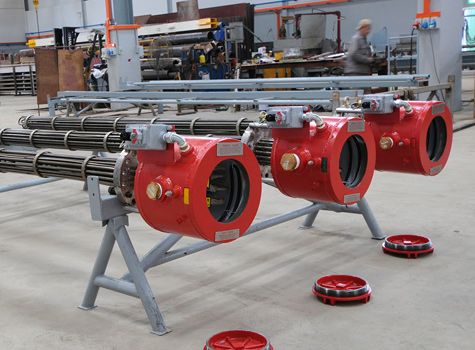More than ever, companies are going to have to both increase and integrate their waste control management measures within the framework of the circular economy. When managing the reduction of air pollution, scrubbing is one method to remove pollutants from stack gases. In some cases, combining a scrubbing medium and the waste product being removed may leave behind crystallized salts that can foul the cooler, which is one component of the scrubber system. Incorporating a scraped surface crystallizer from Armstrong Chemtec, for streams containing inorganic salts, is a relatively low-cost investment, and it allows you to achieve trouble-free and continuous plant operations.

A circular economy is a concept whereby a closed-loop is created from the initial receipt of raw material to product manufacturing, and finally to the repurposing of recycled materials. These can be reintroduced into the manufacturing cycle, and this can be accomplished at one location. For this economy to work, it is essential to recover energy from waste. When possible, it is ideal for phasing out waste disposal and optimizing 100% recycling. Zero waste must be the goal; however, at this time, waste cannot be completely phased out in all instances, and so waste must be rigorously controlled.
For instance, some plants carry out sulfonation reactions and other similar processes that involve sulfuric acid. As a result of this reaction, a waste stream is rich in glaubers salt. Scraped surface crystallizers, made from appropriate construction materials, are one option for stripping out the excess waste material when sewer disposal is not an option. Many inorganic materials, like glaubers salt, silver nitrate, and sodium carbonate, commonly fall within this category. In addressing this problem, Armstrong Chemtec crystallizers have proven to yield excellent results, particularly with plating baths, cyanide salt removal, copper plating of wire, and more.
SUPERCRITICAL FLUID HEATERS
We live in a world where it is vital to design and operate waste treatment equipment and then integrate that equipment into manufacturing. Doing this creates a truly circular economy. Such measures generate an economy that is good for business because of lower energy and operating costs that benefit the environment and human health.
